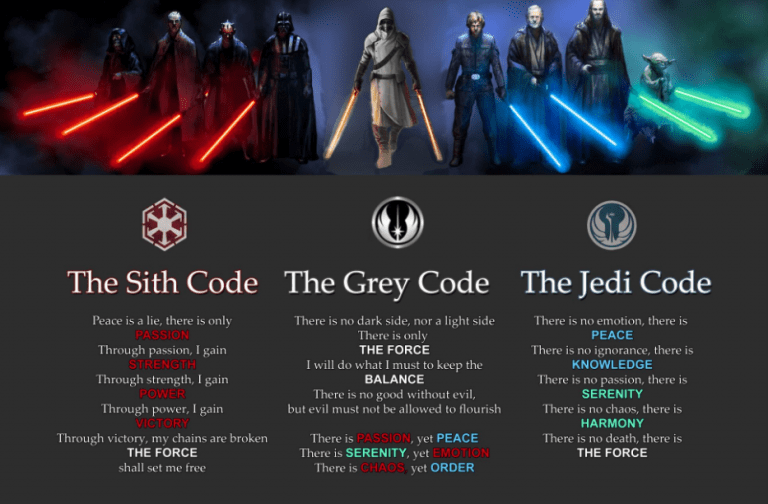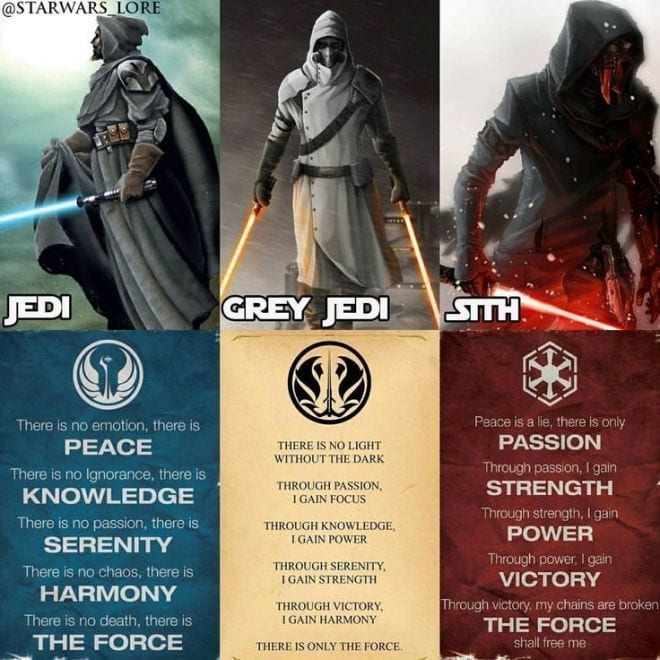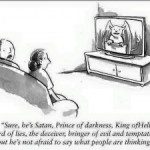Jedi master Yoda famously said that “fear leads to anger, anger leads to hate, hate leads to suffering.” He also said, “Once you start down the dark path, forever will it dominate your destiny, consume you it will.”
You may be surprised that I disagree with Yoda, at least to an extent. The approach of the Jedi, I think we have seen more clearly as Star Wars storytelling has continued over recent years, was to go to one extreme in an effort to avoid the dangers of the other. They warned of the dark side as a slippery slope. And there’s certainly an element of truth in that. Power is desirable and can become addictive. But it is possible to train oneself to live in moderation and avoid excess. It is possible to overcome addiction. And it is possible, as the story of Anakin Skywalker shows very clearly, to repent and find redemption.
This is important to keep in mind when approaching the topic of this blog post, which is that many have crossed the line from anger into hatred. Anger at injustice, dishonesty, and other things in our society and in our government is understandable and justified. Hating other human beings who perpetrate these things moves in a different direction. It is often premised on a denial of our shared humanity, as though we are different in nature and biology from those who do such things, as though we ourselves could never do the things they do. The truth is that often the route that led others to do those things is the very path we find ourselves on in response: starting with justified anger, then allowing it to develop into hatred.
If we want to get at the root of the problem then we need to recognize that, if the Jedi were wrong that the path to the dark side leads inevitably on, they were absolutely right that each step along it makes the next one easier. We become angry, then become comfortable with anger, then hate those who do the things we’re angry about, until we become comfortable with hatred. More troubling attitudes and actions often follow next after that.
Ultimately I’m more interested in the Christian path than the Jedi path, but I’m a Christian who has learned much from Star Wars, and who deeply appreciates its emphases on balance and redemption. What we are likely to miss is that neither of those things was part of the way of life and the teaching of the Jedi. They spoke of “balance” but advocated an absolutism that rejected all attachments and anger, rather than finding ways to be made stronger through love and righteous indignation while also learning how to avoid going too far. Luke Skywalker found and exemplified that possibility as he dared to hope for his father’s redemption rather than merely trying to fight and kill him, as he found strength in the anger that arose in him when his father threatened to seek to turn Leia to the dark side, and as he saw that once he had reached the point of a hand for a hand, it was time to stop, since going further was not justice nor balance, but vengeance.
As Tom Krattenmaker wrote in USA Today recently:
The Christians who make up the country’s religious majority ought to know better than to hate. As Yale Divinity School theologian Willie James Jennings points out, anger is entirely appropriate, even righteous, in the face of injustice. The problem is hatred — the hatred of other people, specifically. Jennings says, “It is simply Jesus. For the Christian, Jesus stands between anger and hatred, prohibiting the reach, blocking the touch and saying to us, ‘Don’t go there. There is nothing there but death.'”
Yoda wasn’t right about everything. Yet he is right about some important things. Anger can lead us into hate and hate can lead us to make suffering worse. Hate leads us to become a mirror image of that which we hate, resulting in a distinction without a difference in the end, as we find that perhaps we would be willing to oppress the oppressors and kill the killers. After that we may be even less discriminating about who is hurt as we seek to secure our power, allegedly (but no longer in reality) with the aim of merely stopping the terrible things we responded to initially from ever happening again, even as we ourselves do much the same things.
It is not a moment for facile forgiveness of abuse, nor for setting aside of anger at deceit or injustice. But it is a time for seeking redemption rather than destruction of those who have perpetrated these things. Calls for “unity” must not be calls to unite despite all differences, to take the cop out of saying we should “agree to disagree,” but an invitation to those who have rejected and opposed diversity, inclusivity, and equality to repent, embrace these values, and be reconciled to and unite with us. It is a time for being extremely careful that, in opposing evildoers, we do not become like them. It is a time for a love that fosters righteous anger yet rejects the way of hatred.
Of related interest:
Phil Long reviews Tremper Longman, The Bible and the Ballot
Fact Check: Is the Evangelical Youth-Inspired Great ‘Awokening’ Just Around the Corner?
Five habits to heal the heart of democracy
And on the Jedi, Sith, and balance see these two variant versions of the ethos of each, as well as of the Grey Jedi who seek a balance between the extremes:















